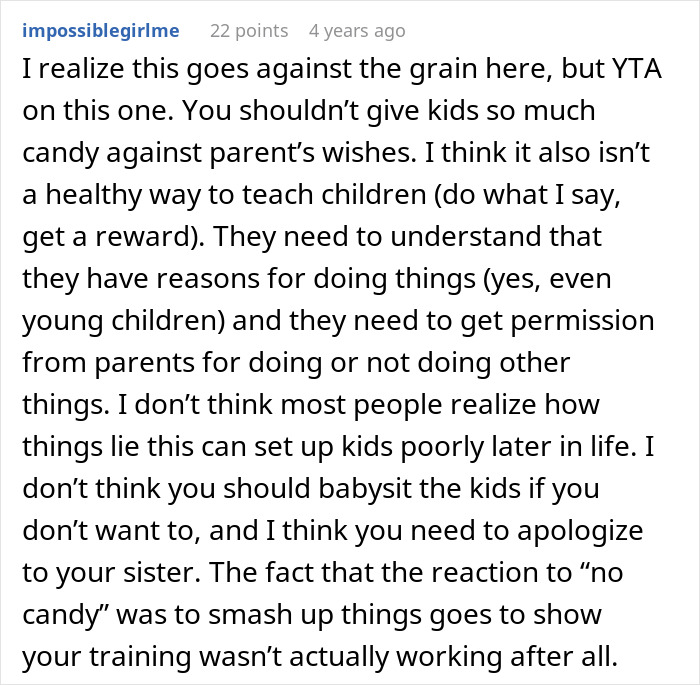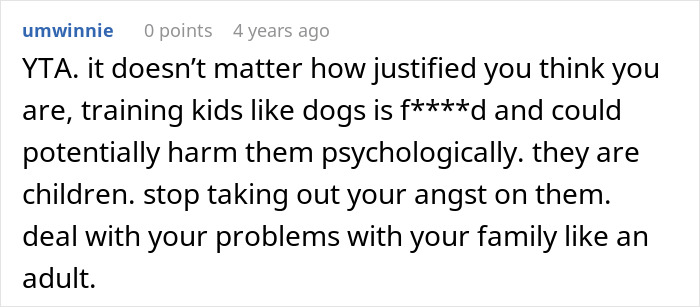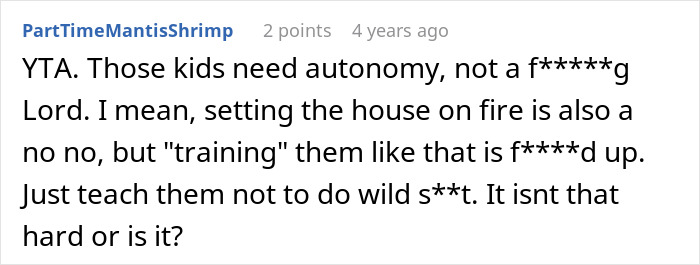Some folks see their relatives as family, people to be cherished, people to spend time with. Others, unfortunately, see them as free labor, and the one type of labor most commonly demanded in cases like this is babysitting.
A woman grew sick and tired of being forced to babysit her cousin’s horrible kids, so she decided to use “treats” (m&m’s) to train them to behave. As it turns out, her cousin didn’t quite like this approach. We reached out to the woman who made the post via private message and will update the article when she gets back to us.
Some parents just don’t know how to control their kids

Image credits: freepik (not the actual photo)
So one mom decided to train her cousin’s children like one would a dog
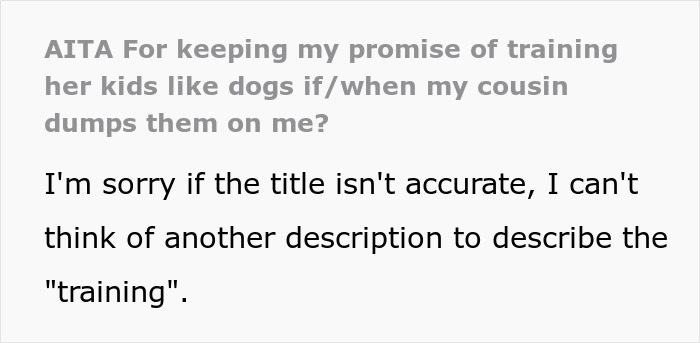

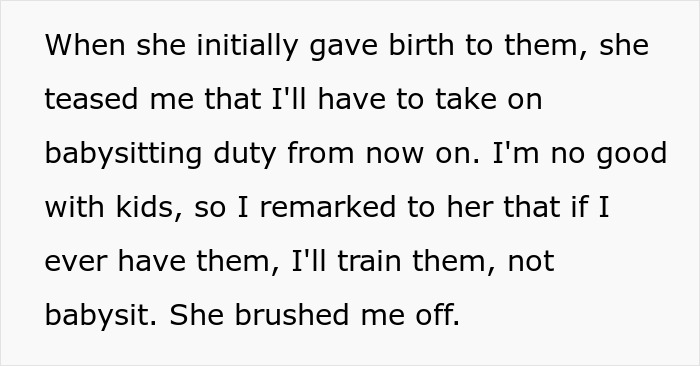

Image credits: standret / freepik (not the actual photo)




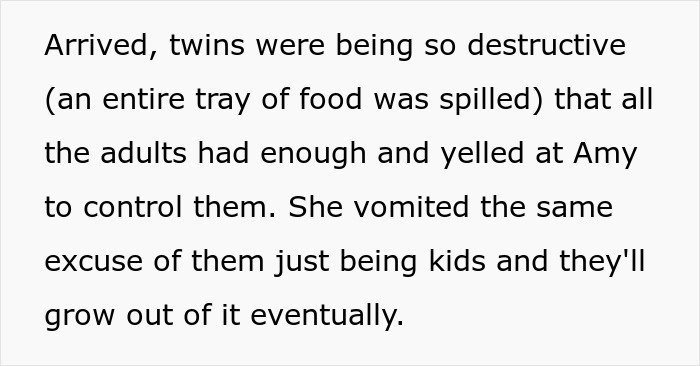

Image credits: Robert Anasch / unsplash (not the actual photo)




Image credits: The Yuri Arcurs Collection / freepik (not the actual photo)


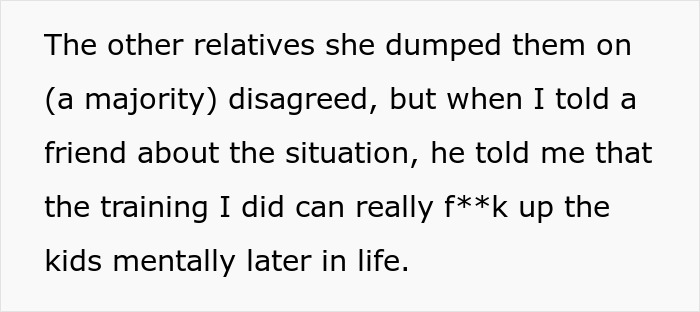
Image credits: throwawayAAAAAHHHHH
Sometimes family members take their relatives “free labor” for granted

Image credits: Jordan González / unsplash (not the actual photo)
Domestic life may be the source of love, bonding, and nurturing, or it may be the battlefield where unspoken expectations and entitlement are engaged. Childcare is one of the most common hotbeds. Parents frequently assume that grandparents, siblings, or other family members automatically owe them free baby-sitting, sometimes even without asking vociferously and considering how this encroaches upon the life of the other person. While helping with children can indeed be a beautiful way in which family becomes closer, it becomes problematic when that help is taken to be required and not something that’s optional.
Part of the issue stems from how people understand family roles. Some parents may think, “Well, we’re family, so of course you’ll do this for me,” without stopping to consider that every family member has their own responsibilities, time constraints, and emotional bandwidth. Grandparents may be retired but not ready to give up autonomy to live their own lives, siblings may have residences and careers of their own to care for, and cousins or more remote relatives may not feel bound to be drafted into the unpaid army of childminders. The recognition that family is meant to provide this kind of work typically originates from tradition or cultural tradition instead of outright conversation.
Entitlement also creates out of convenience. Babysitting is expensive, and competent childcare professionals are not easy to find. Thus, when there is a close family member available, some parents may see it as the most convenient option and depend on it a lot. But once it becomes frequent help and not sporadic, and then becomes an open expectation, it creates unevenness. The caregiver relative feels exploited, especially when their time and labor do not receive appreciation or regard. What at first was a kindness is now a work for free they never offered.
It can be hard to set boundaries with family

Image credits: Curated Lifestyle / unsplash (not the actual photo)
There’s also the emotional aspect. Saying “no” to family members is harder to do than saying “no” to anyone else, as it can be interpreted as not caring or loving. Relatives may guilt parents with such platitudes as, “Don’t you love the kids?” or “It’s only for a few hours,” attempting to downplay the distress it will cause.
It is that emotional capital that stingingly makes entitlement pain, what would otherwise be a courteous ask turns to coercion, and the family relationship is used as a weapon to make someone submit. The thing about free family babysitting is it should never be assumed, it needs to be asked for and respected when refused. Positive dynamics ensue out of considering childcare as a gift and not a right. Appreciation can take you a long way, saying thanks for the time sacrifice, offering to do something in exchange, or at least saying thank you levels the playing field.
What destroys it is assuming that someone else’s time is just yours just because you’re related.
In the long term, though, families thrive when respect is the rule. Children benefit most when the people in charge are doing so voluntarily, not out of guilt or duty. Babysitting can actually strengthen family relationships, but it has to be voluntarily given. When entitlement enters the picture, resentment ensues, and instead of helping each other, family members start to drift apart.
She gave some more details in the comments
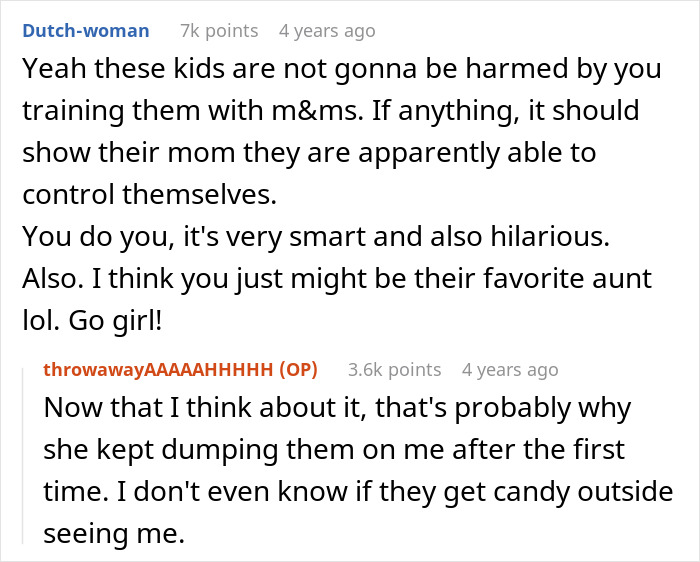
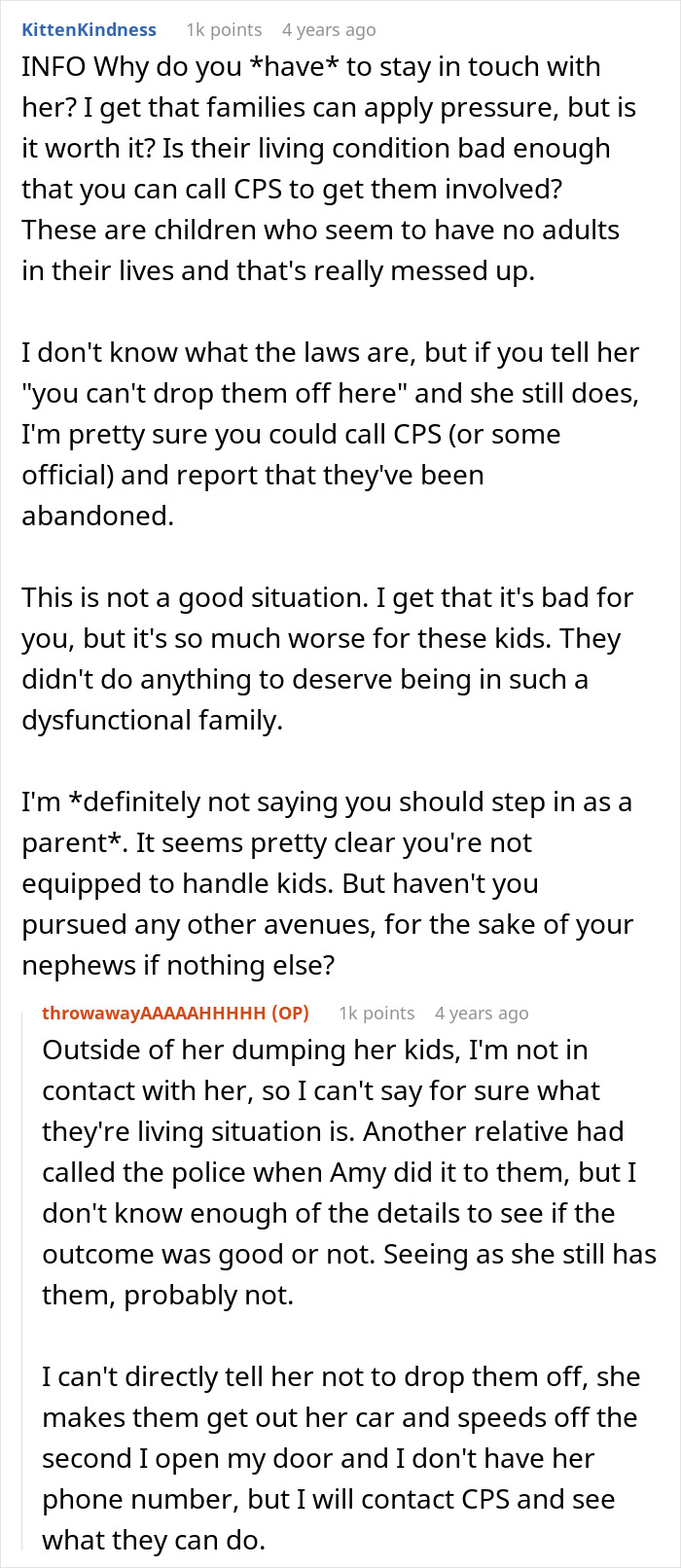


Most sided with the woman


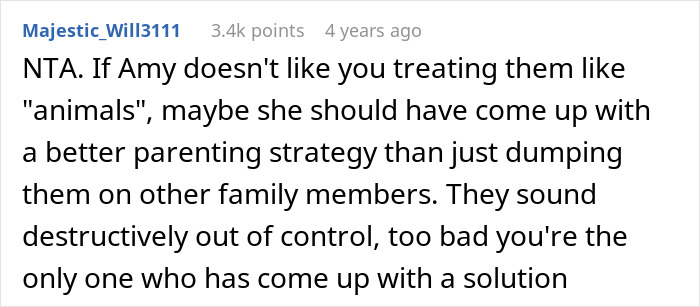



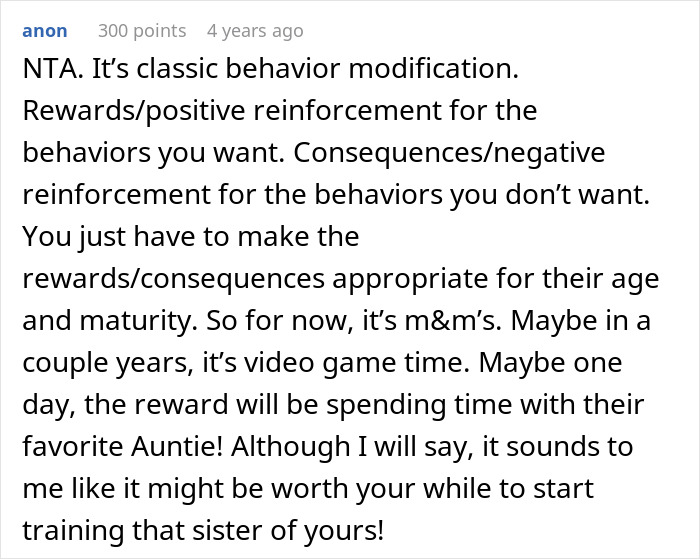


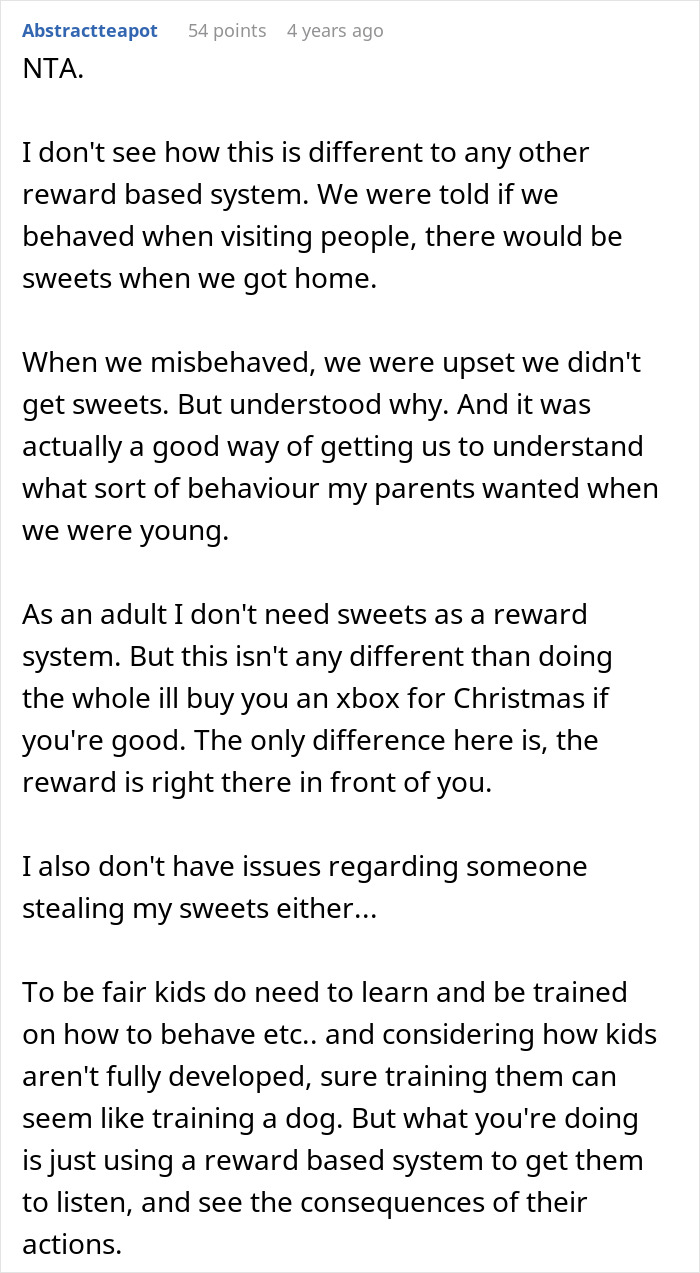
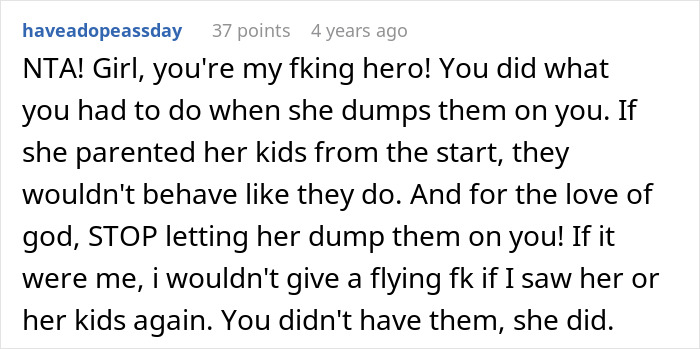
Some blamed everyone

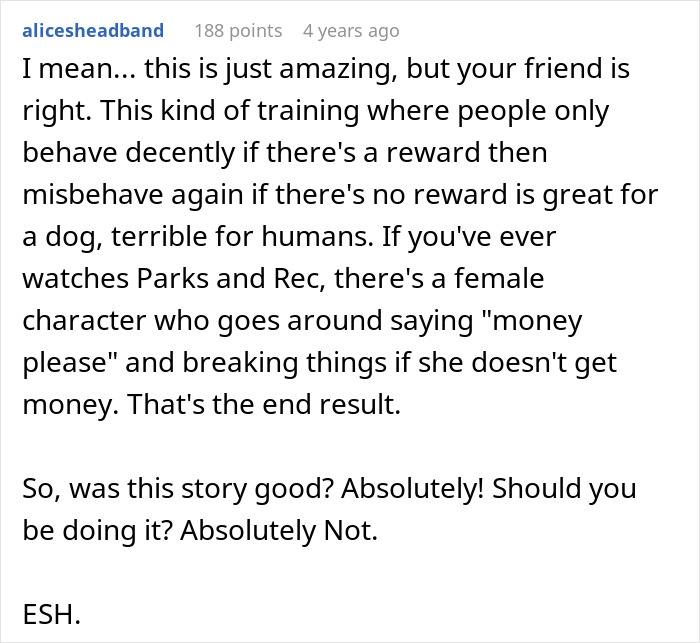
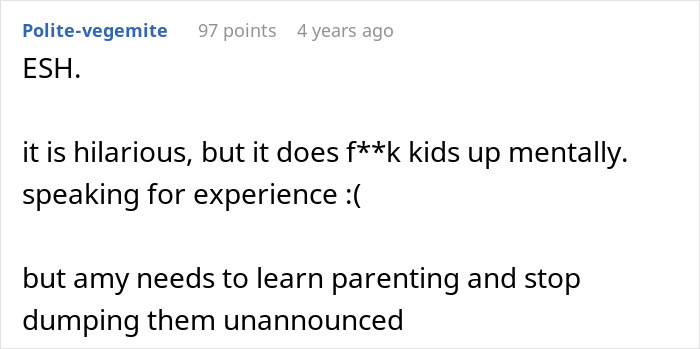

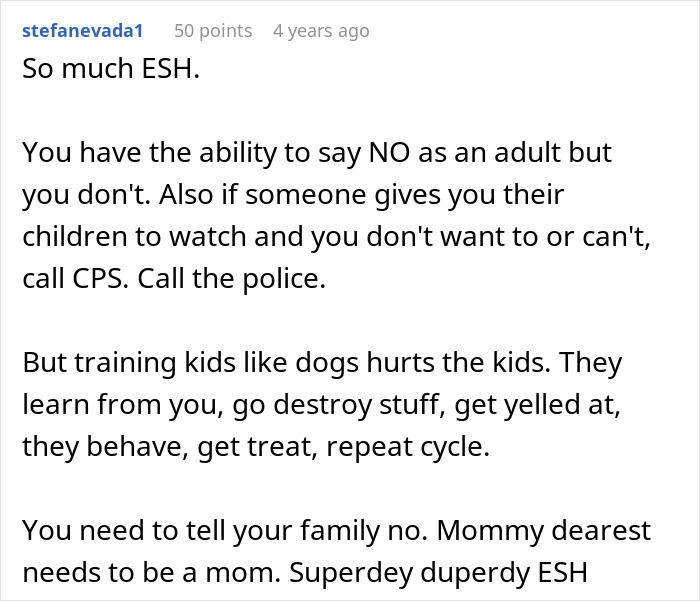
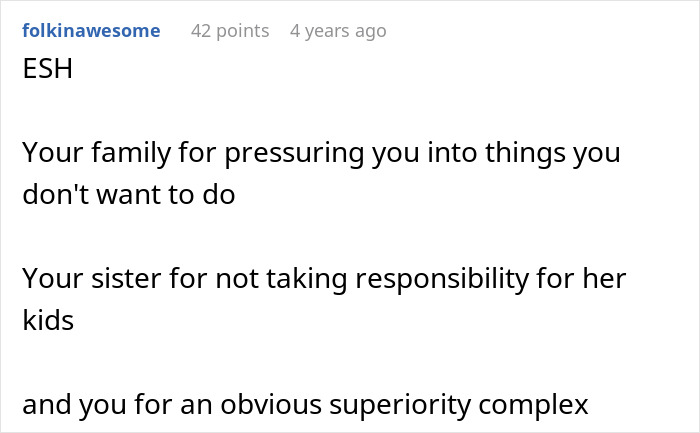
A few thought she was irresponsible
